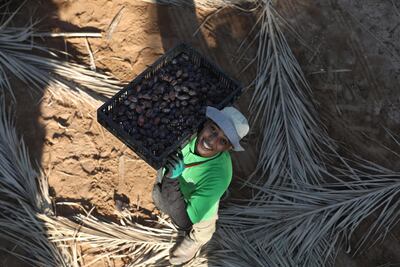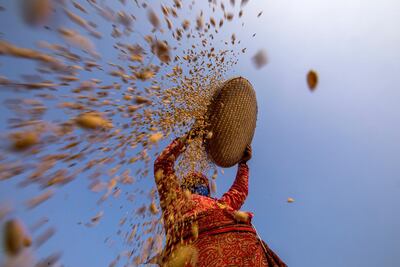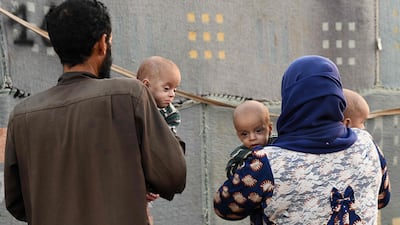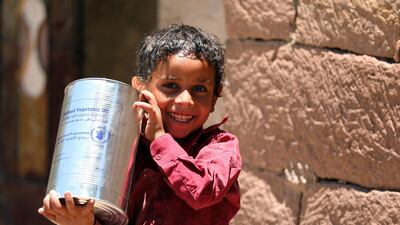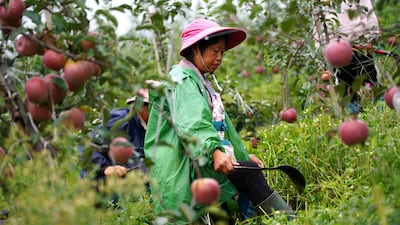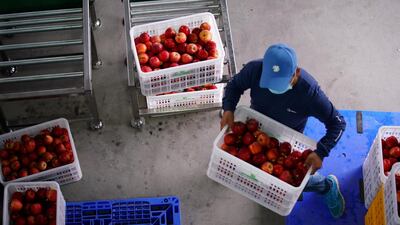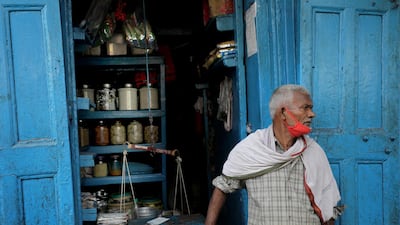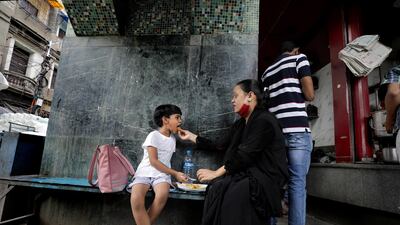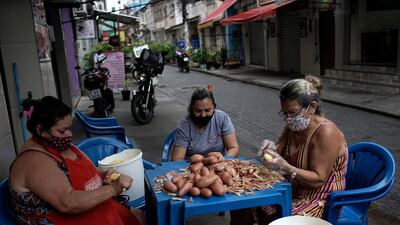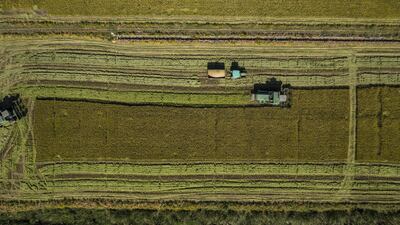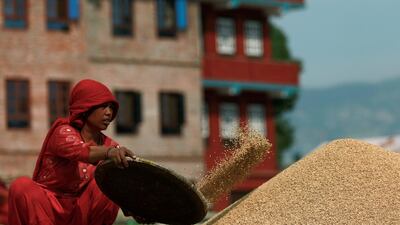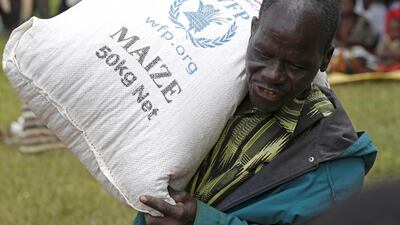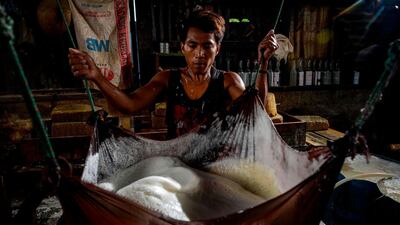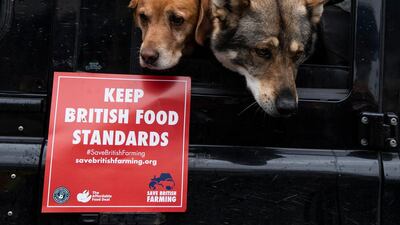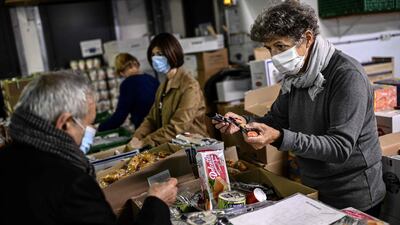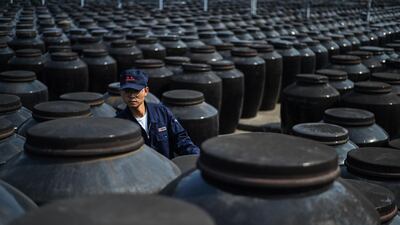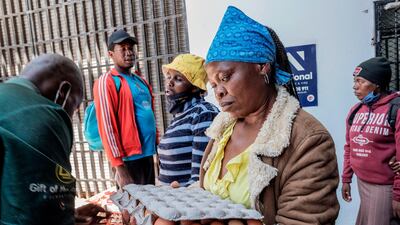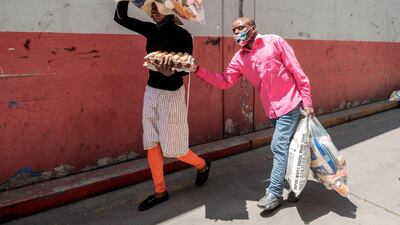The UN’s food agency was born in the wake of catastrophe. Three quarters of a century later, its mission has been made more relevant to the world at large by another global scourge.
I won’t deny it: when I took over as director general of the Food and Agriculture Organisation of the United Nations (FAO) last year, I could barely contain my emotion. FAO’s foundation, after all, had preceded – if only by a matter of days – that of the UN itself.
That I, born into a Chinese peasant family, would come to lead such a venerable institution was awe-inspiring enough.
What I did not expect was that a short while into my tenure, the world would be confronted with a challenge on a scale not seen since the end of the Second World War.
The Covid-19 pandemic has not only taken a toll on human lives and health, it also threatens the livelihoods of hundreds of millions of people across the world.
Food security, until recently a rather foreign concept to many living in well-to-do countries, made headlines around the globe and set the agenda at many high-level events.
Let’s return to 1945, the year FAO was founded: a third of the victims of the Second World War had died of malnutrition and associated diseases. Famines had decimated populations over the previous decades.
So nations came together and FAO was established on 16 October 1945. Its founders invested in the new institution the world’s aspiration – to help the world rebuild and expand agriculture and to end hunger forever.
Today’s crisis may be less tangibly apocalyptic. But the numbers are no less staggering. Even before Covid-19 hit, nearly 700 million people were undernourished. The economic disruption linked to the pandemic may add another 130 million or so to these.
In the early days of the pandemic, when shelves went empty; when fruit-pickers went missing; when markets fell silent, we realised that we were taking for granted these services and the people that provide them. The moral imperative to feed the world – safely, durably and with dignity for all – is as urgent now as it was after the War.
Over subsequent decades, this vision became immensely more complex, enriched with environmental and sustainability concerns. A more holistic understanding of development set in.
Until the mid-2010s, the world was making impressive progress in reducing hunger. But it has since been rising again. Conflict and extreme weather patterns are to blame, at least in part.
I am aware, as I write these lines, that the analogy with 1945 can only get us so far
What we now need is smart, systemic action to get the food to those who need it and improve it for those who have it. Action to prevent crops from rotting in the field, for lack of efficient supply chains. Action to enhance the use of digital tools and artificial intelligence, so as to predict threats to harvest, automatically trigger crop insurance and cut climate risk. Action to rescue biodiversity from relentless erosion. Action to turn cities into the farms of tomorrow. Action by governments to implement policies that make healthy diets more accessible. Action by agencies like mine to turn to thinktanks and action-tanks rolled into one, linking up with the research community and the private sector to unleash the power of innovation.
So at 75, FAO is far from thinking of riding off into the sunset. We are not day-dreaming either. Covid-19 has made it abundantly clear that our mission is as relevant as when our founders created FAO in 1945. Cataclysms spur renewal. The pandemic has reminded everyone that food security and nutritious diets matter to all.
This is why FAO is today embarking on the next chapter in its story with a renewed sense of purpose. On the structural side, a flatter leadership structure and a modular approach allow for a more rapid reaction when crises hit.
A comprehensive and holistic Covid-19 response and recovery programme addresses the socio-economic impacts of the pandemic, mitigating the immediate pressures, while strengthening the long-term resilience of food systems and livelihoods.
Our hand-in-hand matchmaking initiative accelerates agricultural transformation and sustainable rural development in countries that have the highest rates of poverty and hunger.
It is supported by a geospatial platform designed as an open-source public good that is already aggregating vast amounts of food security data.
The position of a chief scientist has been established to sharpen knowledge generation and drive scientific partnerships geared to the Sustainable Development Goals.
The newly reformed FAO is more inclusive, efficient and dynamic, focusing on what we have designated as the “Four betters”: better production, better nutrition, a better environment, a better life.
We strongly believe that the future is made of such gestures – by ourselves, by our partners, by civil society. It takes vast numbers to achieve Zero Hunger. Indeed, it takes all of us.
Dr QU Dongyu is the director general of the Food and Agriculture Organisation of the UN
UAE currency: the story behind the money in your pockets
Joy%20Ride%20
%3Cp%3E%3Cstrong%3EDirector%3A%3C%2Fstrong%3E%20Adele%20Lim%3Cbr%3E%3Cstrong%3EStars%3A%20%3C%2Fstrong%3EAshley%20Park%2C%20Sherry%20Cola%2C%20Stephanie%20Hsu%2C%20Sabrina%20Wu%3Cbr%3E%3Cstrong%3ERating%3A%20%3C%2Fstrong%3E4%2F5%3C%2Fp%3E%0A
UAE currency: the story behind the money in your pockets
Things Heard & Seen
Directed by: Shari Springer Berman, Robert Pulcini
Starring: Amanda Seyfried, James Norton
2/5
Key facilities
- Olympic-size swimming pool with a split bulkhead for multi-use configurations, including water polo and 50m/25m training lanes
- Premier League-standard football pitch
- 400m Olympic running track
- NBA-spec basketball court with auditorium
- 600-seat auditorium
- Spaces for historical and cultural exploration
- An elevated football field that doubles as a helipad
- Specialist robotics and science laboratories
- AR and VR-enabled learning centres
- Disruption Lab and Research Centre for developing entrepreneurial skills
GAC GS8 Specs
Engine: 2.0-litre 4cyl turbo
Power: 248hp at 5,200rpm
Torque: 400Nm at 1,750-4,000rpm
Transmission: 8-speed auto
Fuel consumption: 9.1L/100km
On sale: Now
Price: From Dh149,900
The specs
Engine: 4.0-litre V8 twin-turbocharged and three electric motors
Power: Combined output 920hp
Torque: 730Nm at 4,000-7,000rpm
Transmission: 8-speed dual-clutch automatic
Fuel consumption: 11.2L/100km
On sale: Now, deliveries expected later in 2025
Price: expected to start at Dh1,432,000
Specs
Engine: Duel electric motors
Power: 659hp
Torque: 1075Nm
On sale: Available for pre-order now
Price: On request
UAE currency: the story behind the money in your pockets
Groom and Two Brides
Director: Elie Semaan
Starring: Abdullah Boushehri, Laila Abdallah, Lulwa Almulla
Rating: 3/5
Terror attacks in Paris, November 13, 2015
- At 9.16pm, three suicide attackers killed one person outside the Atade de France during a foootball match between France and Germany
- At 9.25pm, three attackers opened fire on restaurants and cafes over 20 minutes, killing 39 people
- Shortly after 9.40pm, three other attackers launched a three-hour raid on the Bataclan, in which 1,500 people had gathered to watch a rock concert. In total, 90 people were killed
- Salah Abdeslam, the only survivor of the terrorists, did not directly participate in the attacks, thought to be due to a technical glitch in his suicide vest
- He fled to Belgium and was involved in attacks on Brussels in March 2016. He is serving a life sentence in France
UAE currency: the story behind the money in your pockets
The smuggler
Eldarir had arrived at JFK in January 2020 with three suitcases, containing goods he valued at $300, when he was directed to a search area.
Officers found 41 gold artefacts among the bags, including amulets from a funerary set which prepared the deceased for the afterlife.
Also found was a cartouche of a Ptolemaic king on a relief that was originally part of a royal building or temple.
The largest single group of items found in Eldarir’s cases were 400 shabtis, or figurines.
Khouli conviction
Khouli smuggled items into the US by making false declarations to customs about the country of origin and value of the items.
According to Immigration and Customs Enforcement, he provided “false provenances which stated that [two] Egyptian antiquities were part of a collection assembled by Khouli's father in Israel in the 1960s” when in fact “Khouli acquired the Egyptian antiquities from other dealers”.
He was sentenced to one year of probation, six months of home confinement and 200 hours of community service in 2012 after admitting buying and smuggling Egyptian antiquities, including coffins, funerary boats and limestone figures.
For sale
A number of other items said to come from the collection of Ezeldeen Taha Eldarir are currently or recently for sale.
Their provenance is described in near identical terms as the British Museum shabti: bought from Salahaddin Sirmali, "authenticated and appraised" by Hossen Rashed, then imported to the US in 1948.
- An Egyptian Mummy mask dating from 700BC-30BC, is on offer for £11,807 ($15,275) online by a seller in Mexico
- A coffin lid dating back to 664BC-332BC was offered for sale by a Colorado-based art dealer, with a starting price of $65,000
- A shabti that was on sale through a Chicago-based coin dealer, dating from 1567BC-1085BC, is up for $1,950
GIANT REVIEW
Starring: Amir El-Masry, Pierce Brosnan
Director: Athale
Rating: 4/5
Global state-owned investor ranking by size
|
1.
|
United States
|
|
2.
|
China
|
|
3.
|
UAE
|
|
4.
|
Japan
|
|
5
|
Norway
|
|
6.
|
Canada
|
|
7.
|
Singapore
|
|
8.
|
Australia
|
|
9.
|
Saudi Arabia
|
|
10.
|
South Korea
|
Forced%20Deportations
%3Cp%3EWhile%20the%20Lebanese%20government%20has%20deported%20a%20number%20of%20refugees%20back%20to%20Syria%20since%202011%2C%20the%20latest%20round%20is%20the%20first%20en-mass%20campaign%20of%20its%20kind%2C%20say%20the%20Access%20Center%20for%20Human%20Rights%2C%20a%20non-governmental%20organization%20which%20monitors%20the%20conditions%20of%20Syrian%20refugees%20in%20Lebanon.%3C%2Fp%3E%0A%3Cp%3E%E2%80%9CIn%20the%20past%2C%20the%20Lebanese%20General%20Security%20was%20responsible%20for%20the%20forced%20deportation%20operations%20of%20refugees%2C%20after%20forcing%20them%20to%20sign%20papers%20stating%20that%20they%20wished%20to%20return%20to%20Syria%20of%20their%20own%20free%20will.%20Now%2C%20the%20Lebanese%20army%2C%20specifically%20military%20intelligence%2C%20is%20responsible%20for%20the%20security%20operation%2C%E2%80%9D%20said%20Mohammad%20Hasan%2C%20head%20of%20ACHR.%3Cbr%3EIn%20just%20the%20first%20four%20months%20of%202023%20the%20number%20of%20forced%20deportations%20is%20nearly%20double%20that%20of%20the%20entirety%20of%202022.%26nbsp%3B%3C%2Fp%3E%0A%3Cp%3ESince%20the%20beginning%20of%202023%2C%20ACHR%20has%20reported%20407%20forced%20deportations%20%E2%80%93%20200%20of%20which%20occurred%20in%20April%20alone.%26nbsp%3B%3C%2Fp%3E%0A%3Cp%3EIn%20comparison%2C%20just%20154%20people%20were%20forcfully%20deported%20in%202022.%3C%2Fp%3E%0A
Violence%20
%3Cp%3EInstances%20of%20violence%20against%20Syrian%20refugees%20are%20not%20uncommon.%3C%2Fp%3E%0A%3Cp%3EJust%20last%20month%2C%20security%20camera%20footage%20of%20men%20violently%20attacking%20and%20stabbing%20an%20employee%20at%20a%20mini-market%20went%20viral.%20The%20store%E2%80%99s%20employees%20had%20engaged%20in%20a%20verbal%20altercation%20with%20the%20men%20who%20had%20come%20to%20enforce%20an%20order%20to%20shutter%20shops%2C%20following%20the%20announcement%20of%20a%20municipal%20curfew%20for%20Syrian%20refugees.%3Cbr%3E%E2%80%9CThey%20thought%20they%20were%20Syrian%2C%E2%80%9D%20said%20the%20mayor%20of%20the%20Nahr%20el%20Bared%20municipality%2C%20Charbel%20Bou%20Raad%2C%20of%20the%20attackers.%3Cbr%3EIt%20later%20emerged%20the%20beaten%20employees%20were%20Lebanese.%20But%20the%20video%20was%20an%20exemplary%20instance%20of%20violence%20at%20a%20time%20when%20anti-Syrian%20rhetoric%20is%20particularly%20heated%20as%20Lebanese%20politicians%20call%20for%20the%20return%20of%20Syrian%20refugees%20to%20Syria.%3Cbr%3E%3Cbr%3E%3C%2Fp%3E%0A
Key changes
Commission caps
For life insurance products with a savings component, Peter Hodgins of Clyde & Co said different caps apply to the saving and protection elements:
• For the saving component, a cap of 4.5 per cent of the annualised premium per year (which may not exceed 90 per cent of the annualised premium over the policy term).
• On the protection component, there is a cap of 10 per cent of the annualised premium per year (which may not exceed 160 per cent of the annualised premium over the policy term).
• Indemnity commission, the amount of commission that can be advanced to a product salesperson, can be 50 per cent of the annualised premium for the first year or 50 per cent of the total commissions on the policy calculated.
• The remaining commission after deduction of the indemnity commission is paid equally over the premium payment term.
• For pure protection products, which only offer a life insurance component, the maximum commission will be 10 per cent of the annualised premium multiplied by the length of the policy in years.
Disclosure
Customers must now be provided with a full illustration of the product they are buying to ensure they understand the potential returns on savings products as well as the effects of any charges. There is also a “free-look” period of 30 days, where insurers must provide a full refund if the buyer wishes to cancel the policy.
“The illustration should provide for at least two scenarios to illustrate the performance of the product,” said Mr Hodgins. “All illustrations are required to be signed by the customer.”
Another illustration must outline surrender charges to ensure they understand the costs of exiting a fixed-term product early.
Illustrations must also be kept updatedand insurers must provide information on the top five investment funds available annually, including at least five years' performance data.
“This may be segregated based on the risk appetite of the customer (in which case, the top five funds for each segment must be provided),” said Mr Hodgins.
Product providers must also disclose the ratio of protection benefit to savings benefits. If a protection benefit ratio is less than 10 per cent "the product must carry a warning stating that it has limited or no protection benefit" Mr Hodgins added.
